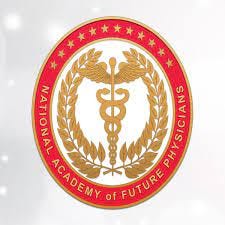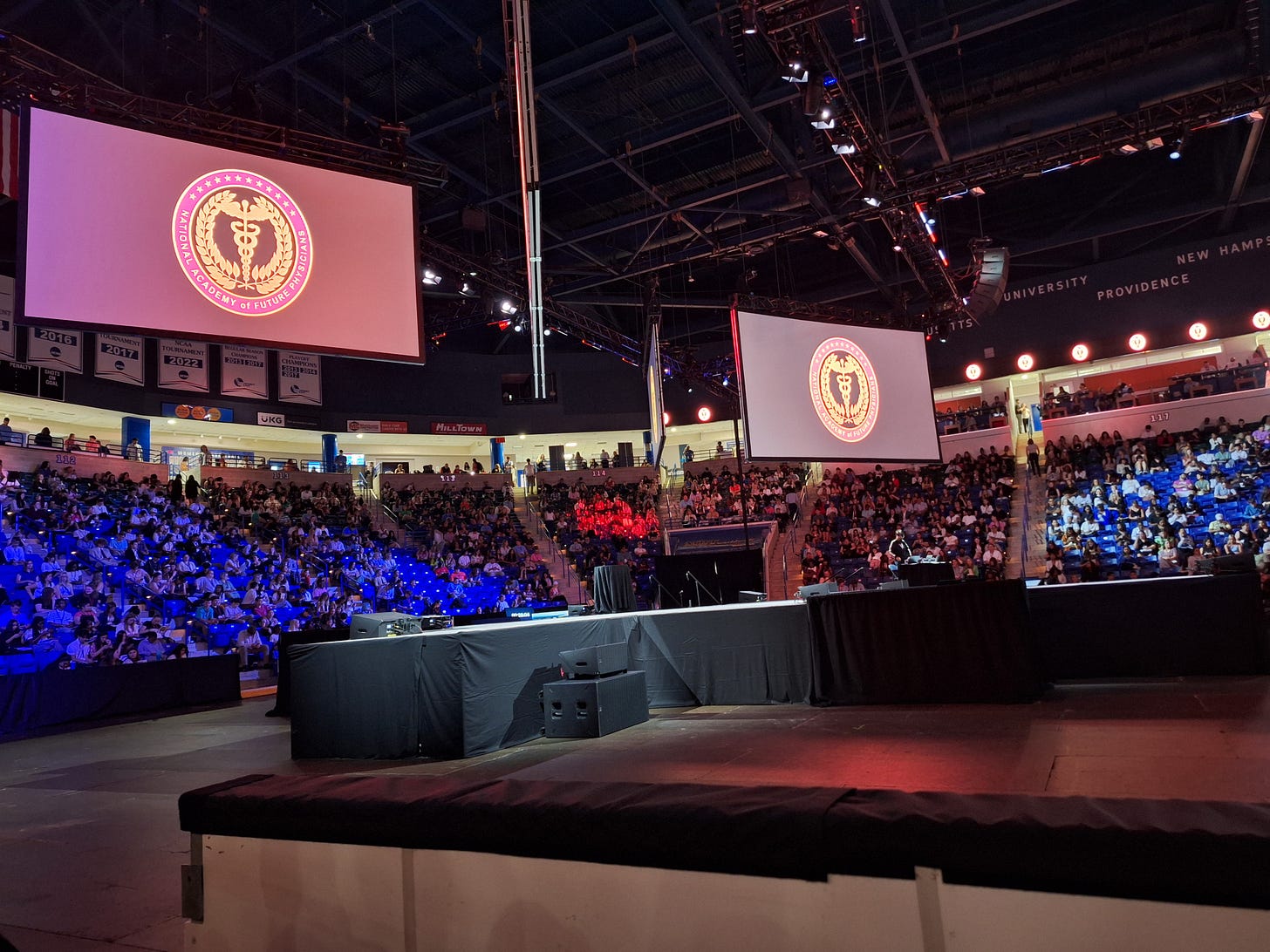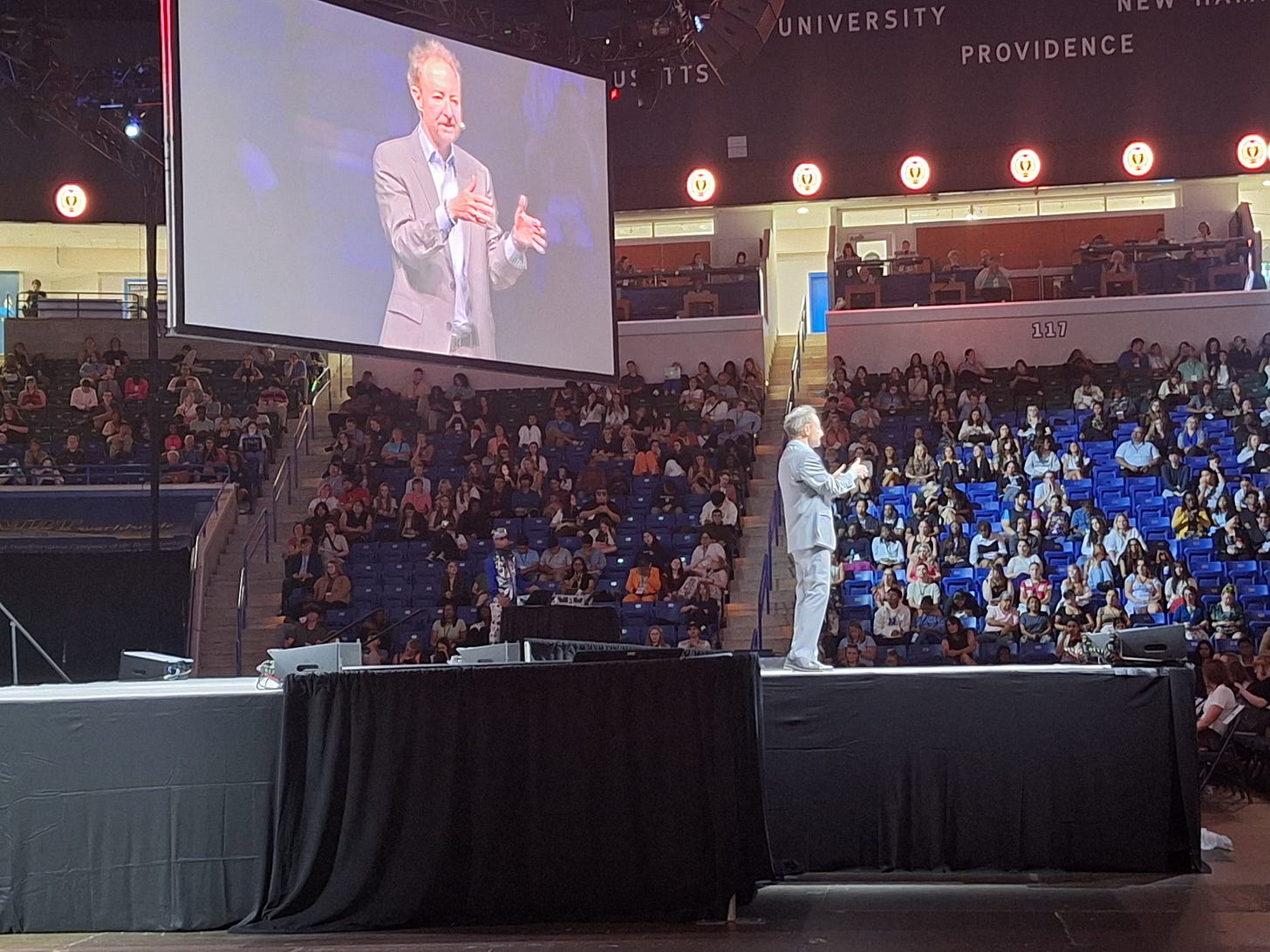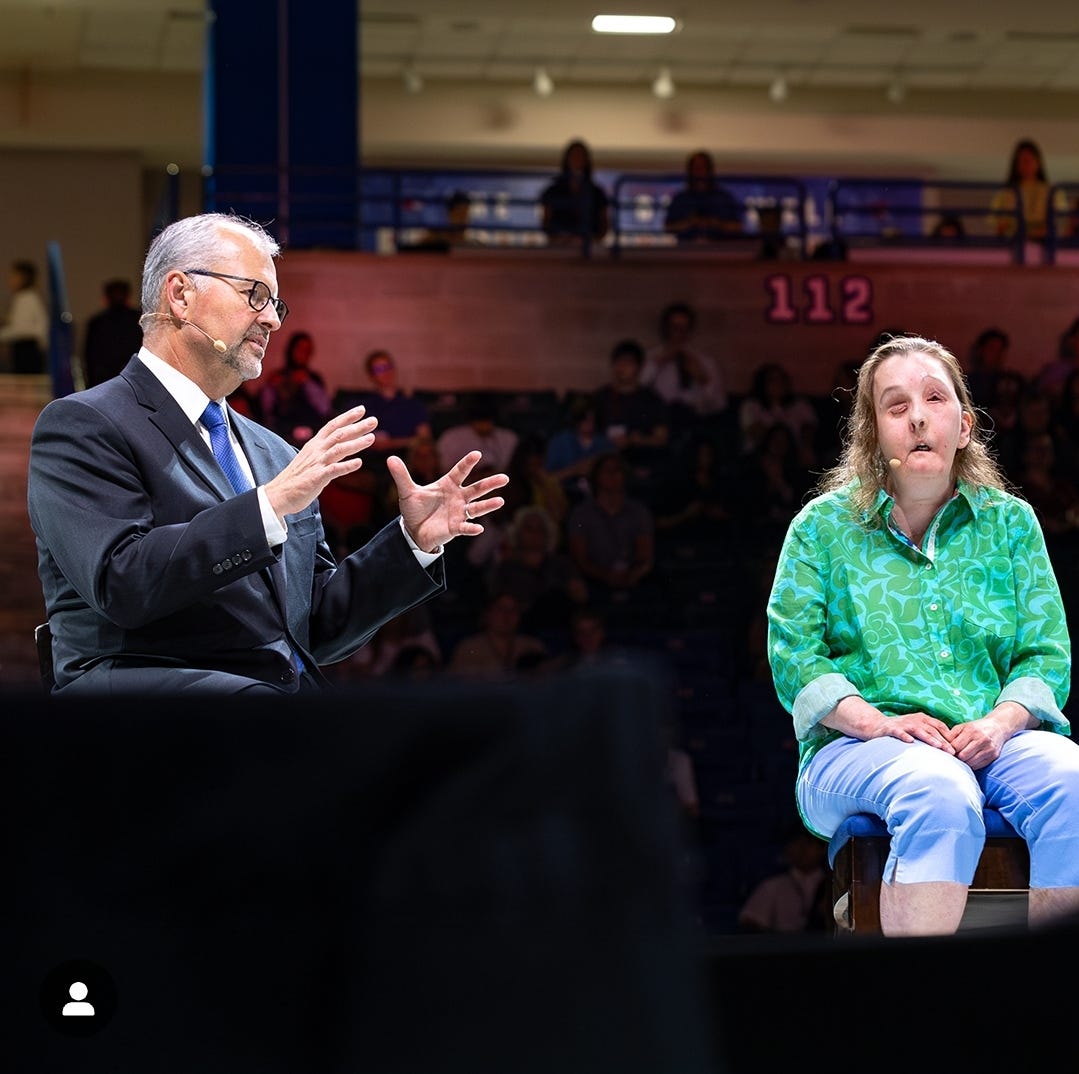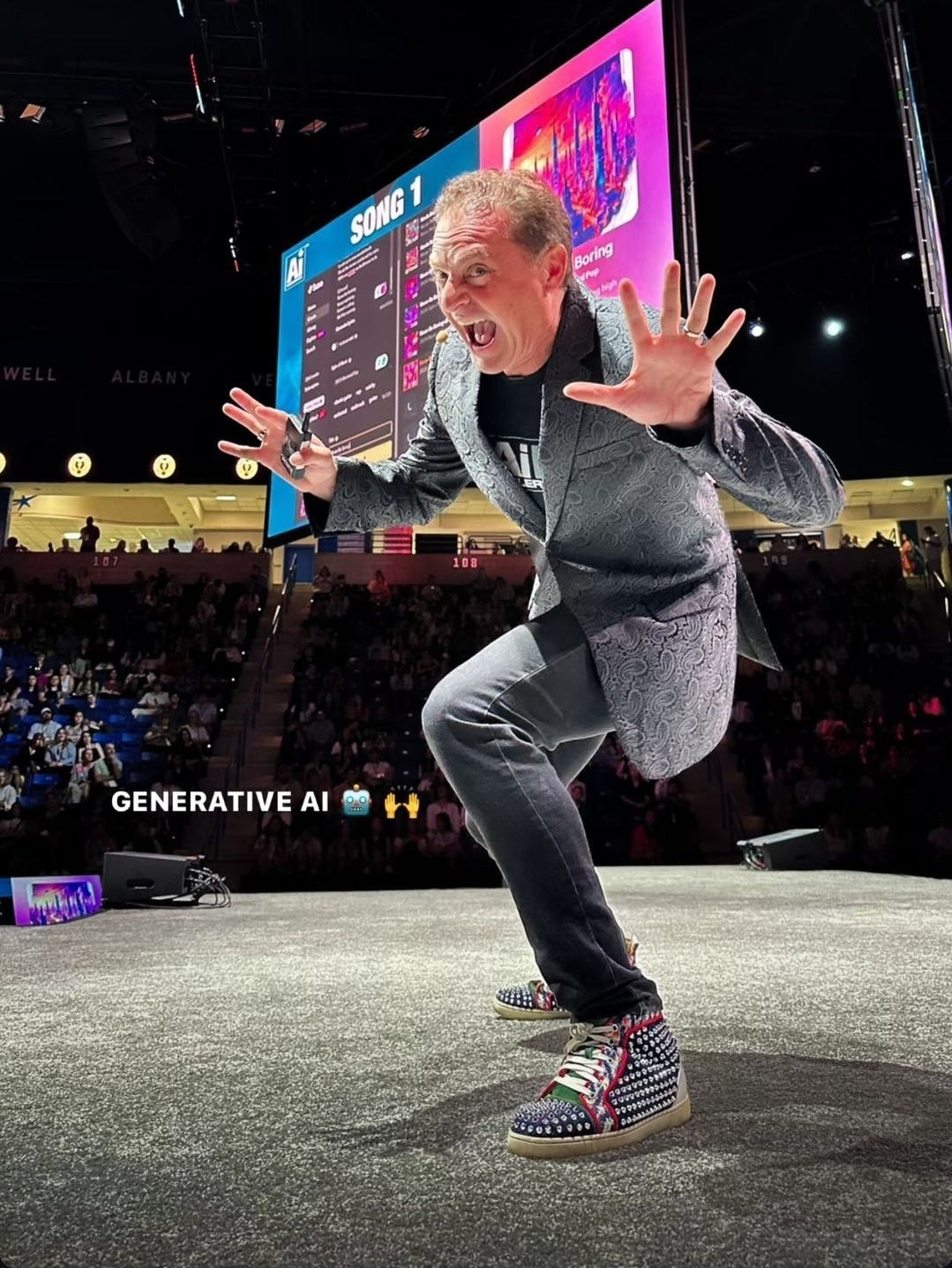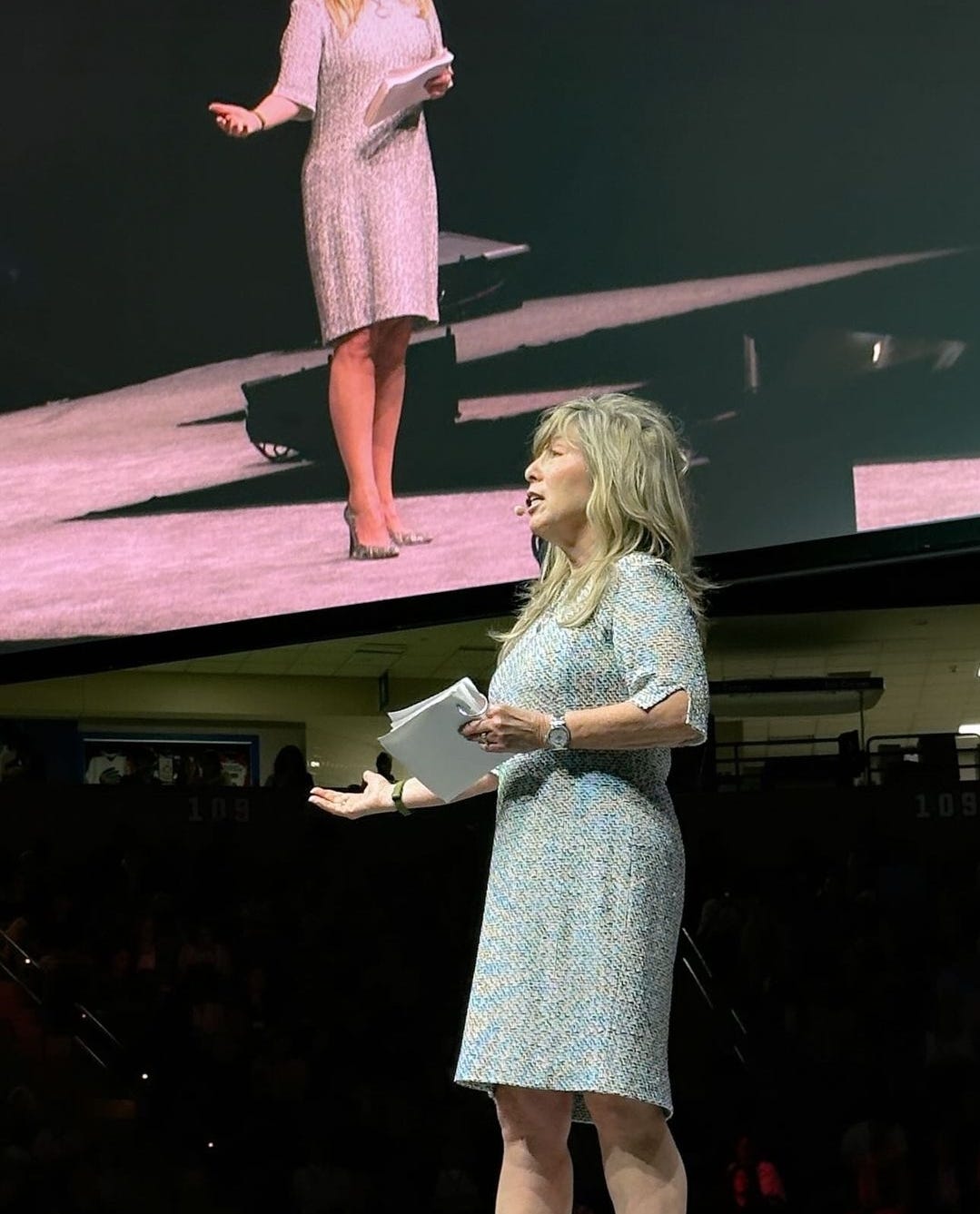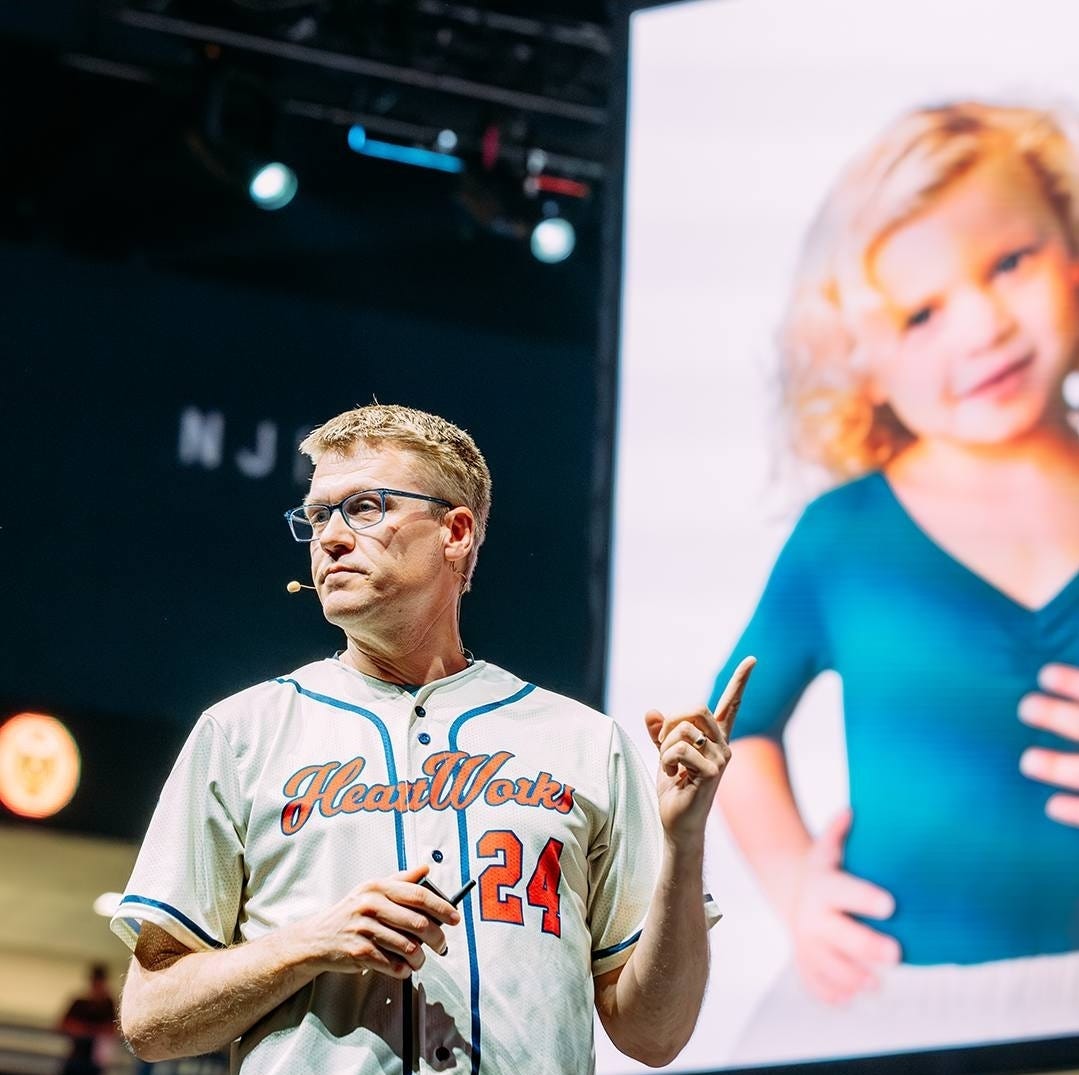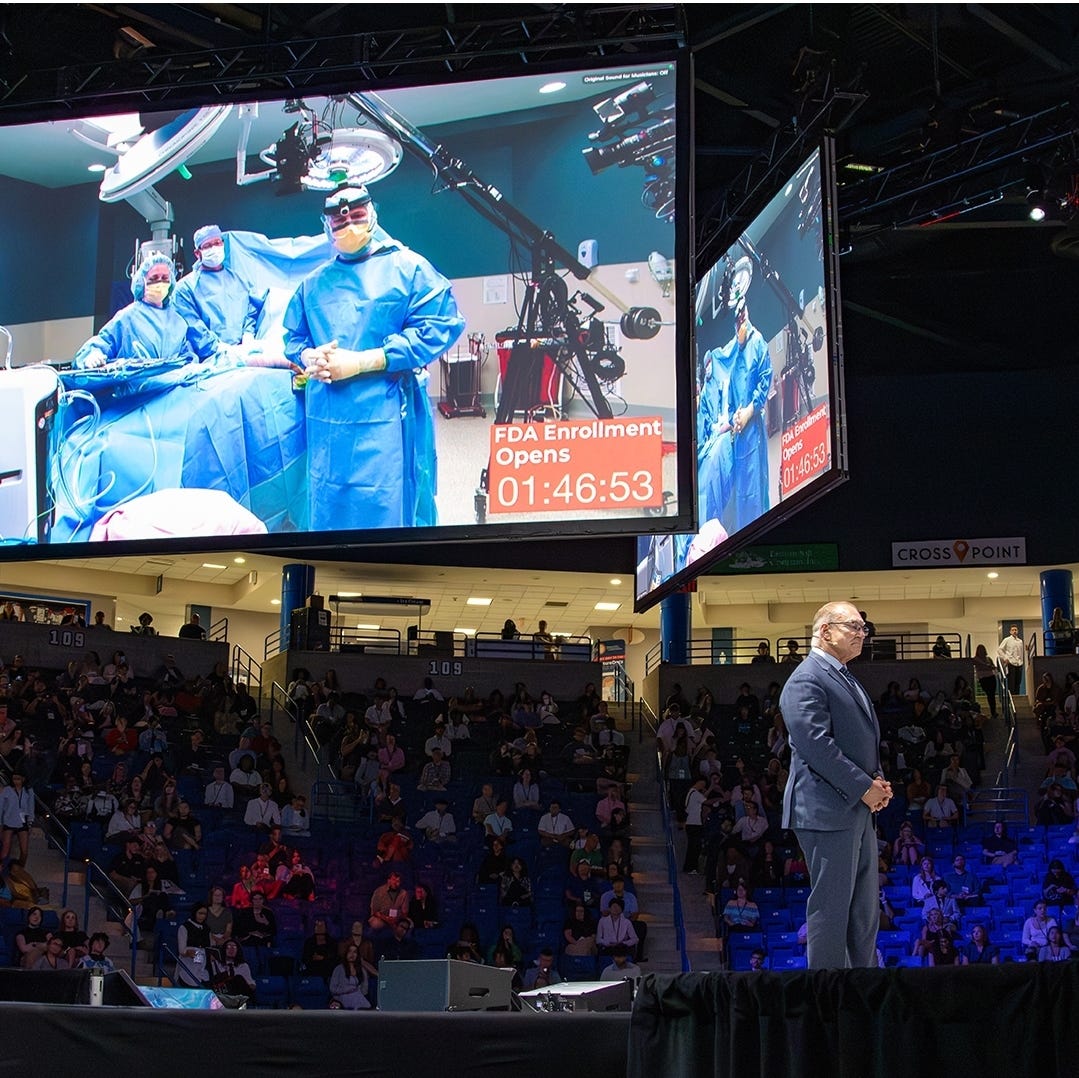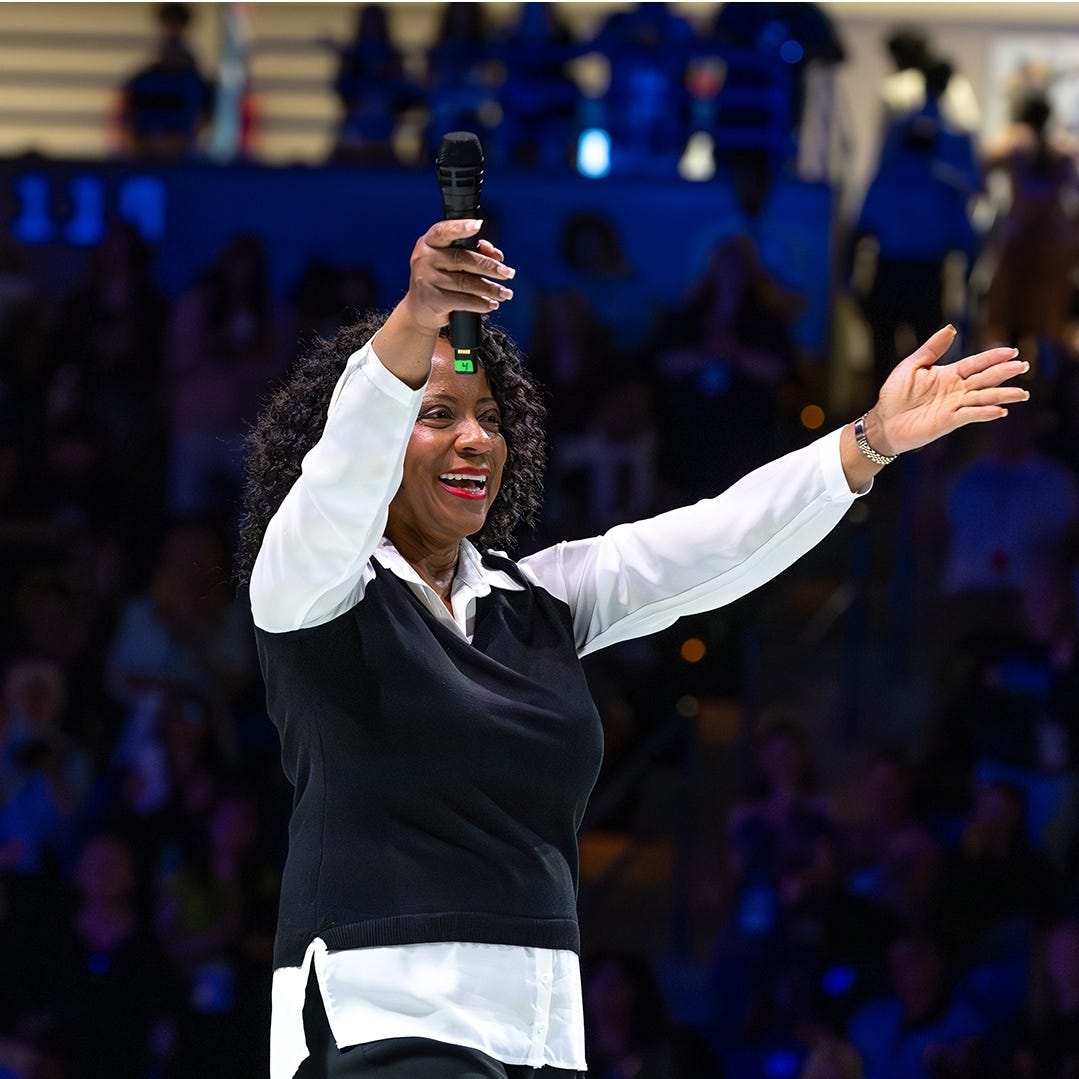The Congress Of Future Medical Leaders
What is it? Is it worth the price? and what was my experience?
You find an envelope addressed to you in your mailbox. You see stamped across it the seal of the Congress. You skeptically open it up because you’re simply expecting a massive scam as most of us do when we receive mail. However, you read further and find it is an invitation to a three-day Congress for aspiring medical doctors and researchers held in Boston, Massachusetts at the University of Massachusetts Lowell. The only catch is… it costs around $1300 to attend if you’re going with family or around $2,000 for the overnight program where you stay at the campus (both don’t include payment for flights, food, etc.)
So as you can imagine, I laughed at the sheer price of the whole trip. At first, I was adamant that I wasn’t going to attend this Congress. But I did some research before truly writing it off. What I collected from their website was that it was going to be three days of a life-changing experience. You’d be mentored and spoken to by world-class doctors, scientists, and young geniuses. Then, I decided to take the leap of faith and pay the fee to put it on my resume for colleges and to learn from experts in their respective fields.
Disclaimer: This may not be for everyone since not everyone is interested in the medical field. But I think that some of these speakers are just downright interesting and you might find something you like. Thank you again for wanting to read my work. You’re truly making my dreams come true <3
Day 1:
I walk into the large arena-like stadium of the Tsongas Center. It is lit by flashing lights and spotlights along the stage. Swarms of hundreds to thousands of people flooded in through the doors. One by one we all find ourselves seats in this massive stadium that can house up to nearly 6,500 people on average plus the middle of the arena which is usually covered in ice is now laid with foldable chairs.
As the swarms of people flock to find seating, the room is loud with chatter. Delegates meet one another whether they are strangers or friends. Crazily enough the first person I talked to was a girl from Florida. We lived in different areas but it was nice to know that despite the room full of people from all over the country like Tennessee, California, and the Carolinas, there were more Floridians out there for me to find.
Soon Richard Rossi, the founder of the Congress, stepped onto the stage. His energy, excitement, and passion for the program radiated from him. His main objective for the congress was to give high-achieving students the recognition and the slight edge for college they deserve.
The first day while it was the shortest opened with some very fascinating speakers. My personal favorites were Dr. Bohdan Pomahac and Carmen Tarleton. Both showcased the perspective of the doctor’s side and the patient’s side of a full face transplantation.
Dr. Pomahac was the first to complete a full face transplant in the U.S. He showcased the amazing work of plastic surgeons and the process behind his work. It essentially is taking a braindead donor and fully removing the face including musculature and vital arteries to supply blood to the face and transfer it to a suitable patient. While this procedure isn’t perfect, it does affect the patient’s social life and self-image in a critical and impactful way.
Carmen Tarleton who was the fifth recipient of a full face transplant and was the second in the world to receive a second full face transplant taught us about resiliency. Despite her tragic story and the many mishaps she went through, she still kept a level head and is beyond grateful for everything she has. If you want to learn more about her story here is a link to an article about her: Carmen Tarleton Story
Day 2:
Day two had even more energy than the first. The DJ, dj_diggabeatz blasted music throughout the stadium and showed everyone how he got down during his time as a breakdancer and old-school popper. It was one heck of a way to start the second day off.
The next rounds of speakers on this day were much more interesting and engaging than the first. The ones I will highlight for day two are Mike Koenigs, Dr. Deborah Behdor, and Dr. Timothy Nelson.
Mike Koenigs taught us about utilizing generative AI as a tool. His opinion on AI is that it can be a tool that can increase efficiency and improve connectivity to others. He sees AI as a perfect tool for first drafts and getting ideas executed. He gave us prompts to ask different AIs like ChatGPT, Gemini, and many others to fully take advantage of AI. Whether using AI is cheating or not he claims “It’s not cheating unless you’re cheating.”
After listening to him talk about AI, I don’t necessarily think it has changed my perception of AI. While I use it sparingly to help me organize notes or brainstorm ideas, there are a lot of people who use it to just get things done quickly and cheat just to get by. While AI is an amazing tool that will continue to grow, how to use it should be taught and its regular use should be used responsibly so that you’re using AI rather than AI using you.
Dr. Deborah Bedor is the CEO of College Admission Central. She is known for her college advising and providing application tools for high schoolers. She does private boot camps and has published countless books about being a stand-out student and how to apply and get into some of the most prestigious schools in the world.
Her time talking to us was extremely useful. She emphasized while academics and GPA are important factors in an application, they aren’t everything there is to it. She highlighted the importance of leadership roles and pushing past what the average student may do. Whether this be starting a club, starting collegiate research in high school, or making an impact in your community, these forms of leadership give you a slight edge in the application process and are what admissions are looking for.
Dr. Timothy Nelson is the CEO and Co-Founder of HeartWorks. He is a scientist and physician trained in medicine and cardiac developmental biology. His talk focused on the work he and his team do for people with congenital heart disease and their solutions to real-world problems. Their solution for one of the worst forms of congenital heart disease called hypoplastic left heart syndrome is bioengineered cardiac tissue. They inject these bioengineered heart tissues into the heart which helps the heart grow stronger and supports the muscle to keep the person alive.
His speech truly impacted me to try and make a difference in my future career. While anyone can be a doctor, not everyone is coming up with real solutions to severe problems. With the continual work of hundreds and thousands of people and additional contributions from others who want to make a difference, these solutions can be made possible. If you’d like to make a donation to HeartWorks or simply read more about the work they are doing I will provide a link for you to do so: HeartWorks Donation
Day 3:
Day three was the final day of the Congress. Throughout the entire experience, the time flew by and the speakers continued to get better and better. This day was the most interesting to me because this was the day we got to watch a live surgery. The speaker I would like to highlight from this day is Linda Clemons.
The beginning of Day three was a live surgery. The surgery was moderated by Dr. Anthony Romeo who is an orthopedic surgeon and shoulder and elbow specialist. He spoke along with the head surgeon during the entire hour-and-a-half reverse shoulder replacement surgery. They not only walked us through the procedure but also showcased the experience of the patient before the surgery.
Watching live surgery isn’t for everyone and it truly is a profession not for the faint of heart. However, watching the procedure showcased a whole new world behind surgery. The team, the preparation, and the communication that happens between the doctor and his team but also the doctor and his patient for the best outcome.
Linda Clemons is an expert in nonverbal communication. She has been utilizing her expertise in business to empower her clients to understand and emphasize body language to their advantage. Her attitude and presence on stage are unmatched and she truly brought life to the Congress.
There were many takeaways from her speech but the biggest were the three Cs. 98% of our communication is nonverbal (38% being tonality & 55% nonverbal body language). So properly reading this nonverbal communication comes down to her three Cs.
1. Clusters:
When we talk, feel emotions, or experience events, we give off many simultaneous or consecutive nonverbal cues consciously and unconsciously. For you not to misinterpret them, make sure you observe multiple movements rather than just one isolated occurrence.
2. Congruency:
People can easily say something but truly not mean it. To see if someone means what they are saying or truly cares about the situation, make sure that the nonverbal and verbal communications match. There has to be a connection between the two.
3. Context:
We have a tendency when we get into a space to immediately take what we are given and assume. Make sure when you see or hear something, understand the context behind it whether it be the space you are in, the people around you, or the etiquette of an environment.
Was it worth it?
After attending the Congress and now writing about it, I would say that the Congress was worth the money and trip. Firstly, I’m glad it wasn’t the scam I first assumed it was. Secondly, it was an experience that I was graciously given the chance to attend. It not only taught me a lot but also gave me significant tips to put myself ahead (slight edge) when it comes to the near future of college and even my future career.
Not only am I able to put attending the Congress into my resume but the additional Award of Excellence and being inducted into the Society of Torch and Laurel which every delegate that attends is granted at the end of the Congress.
I am grateful for the experience and the people that I got to meet during this trip. Meeting professionals in a field that I have always had a calling to because of my desire to help people and change the world someday was truly insightful. I hope to one day be one of those speakers, inspiring the younger generations, and making an impact on the world.





